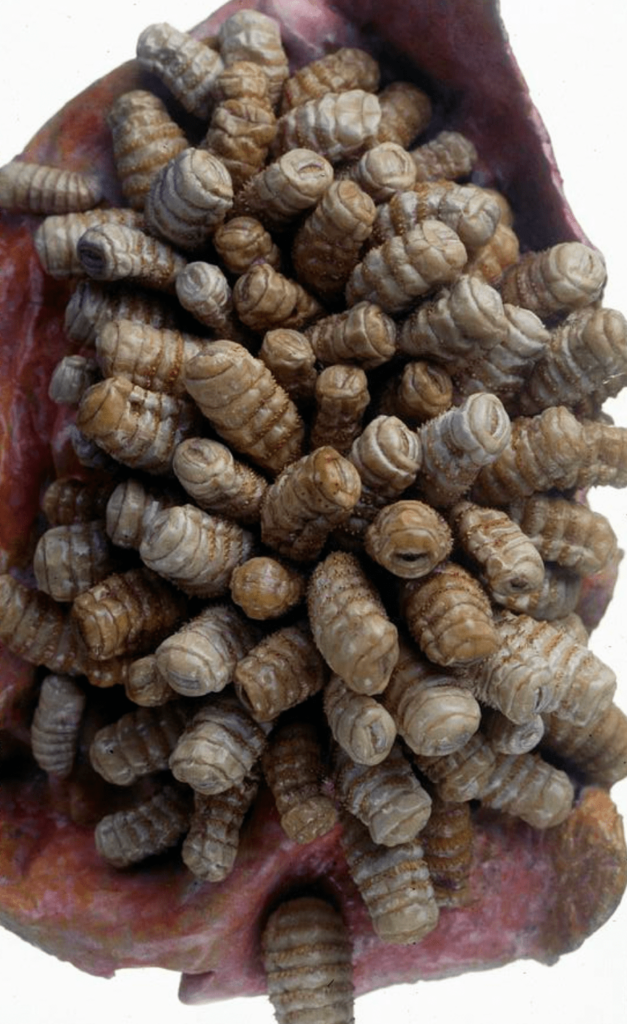Gasterophilus intestinalis, commonly known as the horse bot fly, is a parasitic insect that poses a threat to equine health. These flies lay their eggs on a horse’s coat, which are then ingested when the horse licks or grooms itself.
The hatched larvae can cause irritation, discomfort, and potential internal damage. Protecting your horse from Gasterophilus intestinalis is essential for maintaining their well-being and preventing health complications. In this article, we will explore effective strategies to shield your equine companion from the risks associated with horse bot flies.

- Regular Grooming:Regular grooming not only keeps your horse looking its best but also plays a vital role in removing bot fly eggs from its coat. Use a grooming mitt or brush to remove any eggs or larvae that may have been deposited on the horse’s hair.
- Timing is Key:Horse bot flies are seasonal insects, with their activity peaking during warmer months. Being aware of their life cycle can help you anticipate when they are most likely to be active and take appropriate preventive measures.
- Use Fly Repellents:Applying fly repellents that are labeled as safe for equines can deter horse bot flies from landing on your horse. Make sure to follow the manufacturer’s instructions and reapply as needed.
- Use Fly Sheets and Masks:Equipping your horse with a fly sheet and a fly mask not only protects them from the sun and biting insects but can also act as a barrier against bot fly eggs.
- Maintain Clean Stalls and Pastures:Regularly clean your horse’s living environment, including stalls and pastures, to reduce the presence of bot fly eggs. Removing manure and debris can minimize the areas where flies may lay their eggs.
- Practice Good Hygiene:Providing your horse with a clean and sanitary living environment reduces the chances of fly infestations. Regularly clean water troughs and feed buckets to discourage flies from gathering.
- Implement a Strategic Deworming Plan:Consult with your veterinarian to create a deworming schedule tailored to your horse’s needs. Certain deworming medications target and eliminate bot fly larvae in the horse’s stomach.
- Manually Remove Eggs:Using a bot knife or specialized grooming tool, manually remove bot fly eggs from your horse’s coat. Pay close attention to areas where flies are more likely to deposit eggs, such as the legs, shoulders, and mane.
- Rotate Pastures:Regularly rotating your horse to different pastures can help disrupt the life cycle of bot flies, reducing their overall presence in your horse’s environment.
- Supplement with Garlic or Apple Cider Vinegar:Some horse owners believe that adding garlic or apple cider vinegar to their horse’s feed can help deter flies. While more research is needed on their effectiveness, these natural supplements are worth considering.
- Use Bot Fly Traps:Bot fly traps are available on the market and can help capture adult flies before they have a chance to lay eggs on your horse. Placing these traps strategically can reduce the fly population in the vicinity.
- Consult Your Veterinarian:If you suspect your horse has been infested with bot fly larvae, consult your veterinarian for advice on appropriate treatments. They can recommend deworming medications and additional measures to address the issue.
Protecting your horse from Gasterophilus intestinalis requires a combination of vigilant care, strategic planning, and preventive measures. By staying informed about the bot fly’s life cycle and implementing the strategies mentioned above, you can minimize the risk of infestation and ensure your horse remains healthy and comfortable. Remember that each horse’s needs may differ, so consult with your veterinarian to create a tailored approach that effectively guards against these troublesome parasites.




